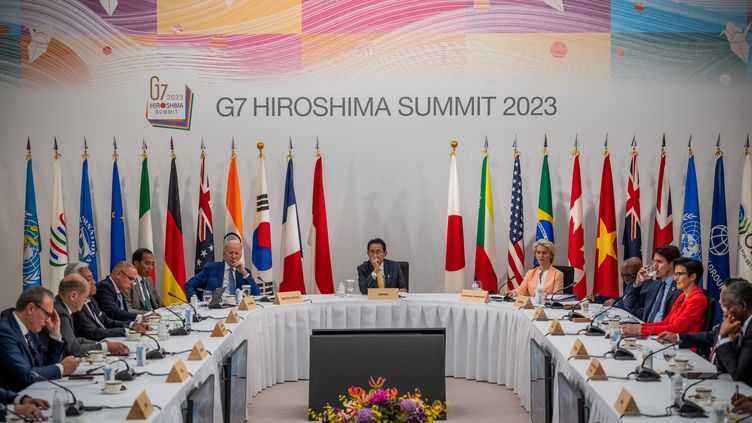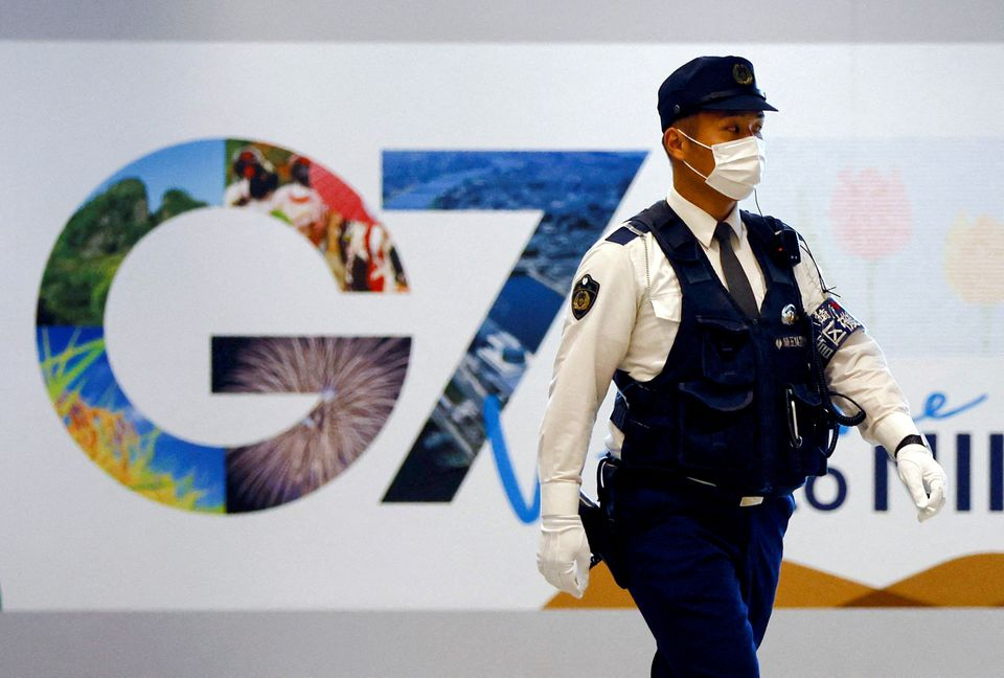By Maria Koulourioti,
The Group of Seven (G7) summit in Hiroshima finished on May 21, and, unlike in the past, the G7 communiqué was issued a day before the conference’s conclusion. Nonetheless, the rest of the world seemed to be uninterested in this dozens-page G7 communiqué, save for the section that attacks China. According to, the Financial Times, the G7 has delivered its harshest denunciation of China, and the majority of other foreign mainstream media outlets agree that it “increases pressure on China.” It appears that the only option for the G7 to gain public attention and demonstrate its presence is to speculate on China-related concerns.
“Economic Coercion” is the justification that the G7 group addresses to China as part of a concealed warning. On the 21st of May, the group heavily instructs that China plays by international rules, especially Beijing, which is allegedly using trade to apply pressure and even control other nations. As a developing power in the international sphere, other concerned member states including the US, Japan, Germany France, Britain, Italy, and Canada held a meeting in Hiroshima, Japan to discuss the need to “minimize their immoderate dependences on China, in their critical supply chains.” In the three-day summit, their joint statement went on to emphasize that the G7’s policies are “not intended to harm China, nor do we seek to stymie China’s economic progress and development.”
Leaders furthermore stated that they wished to maintain ‘constructive and stable’ relations. China denounced the G7 for its remarks, expressing strong discontent’ with the claims leveled against it. In accordance with the foreign ministry, “the G7 insisted on distorting China-related problems, smearing and criticizing China”.
Officials and experts stated China’s lack of effectiveness in advancing global governance simultaneously with G7’s declining influence and emphasis on fanning bloc confrontation. Moreover, observers warned that the grouping also outlined the United States-led Western countries’ plans to further menge in the Asia-Pacific region politically, economically, and militarily. As a result, China was a hot topic in a series of documents adopted by the summit, such as the G7 Hiroshima Leaders’ Communique.

The gathering hyped up the Taiwan Strait crisis and made charges against the East China Sea, the South China Sea, the Hong Kong Special Administrative Region, the Xinjiang Uygur and Tibet autonomous territories, and China’s nuclear power through these materials.
According to, the Foreign Ministry, Beijing firmly condemns and opposes this, and has “made serious demarches to the summit’s host Japan and other parties concerned.” “The G7 used China-related issues to smear and attack China, and brazenly interfere in China’s internal affairs,” a Foreign Ministry spokeswoman said on Saturday. The G7 claimed to be “promoting a peaceful, stable, and prosperous world,” but “what it does is hinder international peace, undermine regional stability, and stifle other countries’ development,” according to the spokesman. A continuous obsession from the G7 in cross-Strait peace missing the need to address “Taiwan independence”, the spokesperson said, constitutes connivance and support for “Taiwan independence” forces, and will only result in having a serious impact on cross-Strait peace and stability.
Overall, the East and South China Seas have remained stable, and relevant nations must “stop using maritime issues to drive a wedge between regional countries and incite bloc confrontation,” according to the spokeswoman. “The G7 needs to reflect on its behavior and change course,” the representative added, “because the globe does not accept G7-dominated Western laws that attempt to divide the world based on ideas and beliefs.” “By doing so, Tokyo is marching in lockstep with Washington in regards to viewing China as a competitor and a threat,” he added. Furthermore, prioritizing “dealing with China” invites external forces to intervene further in Asia-Pacific affairs and seek collective hegemony. This will only exacerbate tensions and antagonism in the area, sabotaging peace and stability. “Our cooperation is not directed at or subject to any third party; we do not engage in closed, exclusive small circles, and we oppose bloc politics and Cold War confrontation,” he explained.
As natural, the larger the G7’s anti-China rhetoric, the smaller the impact that will be made. It is not difficult for the G7 to “reclaim its former glory.” It only needs to keep its pledge of “not harming China,” stick to the one-China principle, avoid decoupling or disguised decoupling, and maintain a “constructive and stable relationship” with China in both words and actions.
References
-
G7 has descended into an ‘anti-China workshop’. globaltimes.cn. Available here
- New accusations seen as sign of G7’s failure. chinadaily.com.cn. Available here
-
G7 leaders issue warning to China and accuse it of ‘economic coercion’. metro.co.uk. Available here




